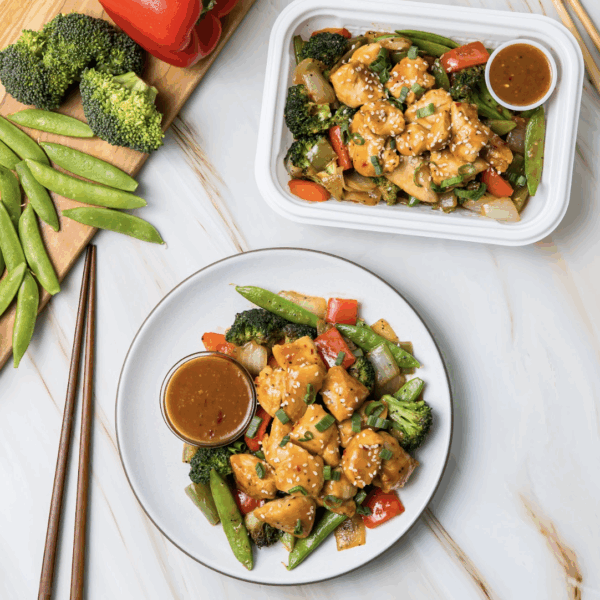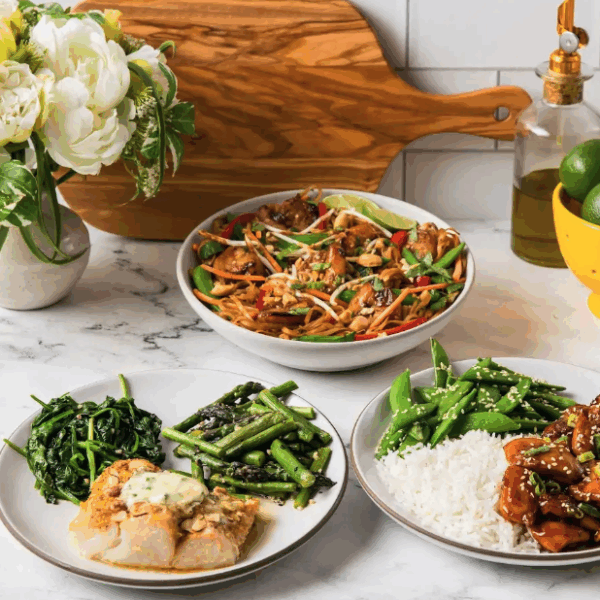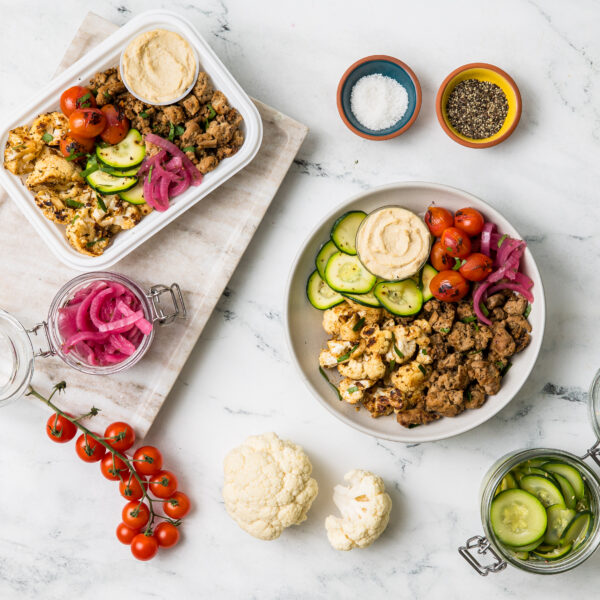You may have heard to avoid vegetable oils, sometimes called seed oils. You’ve probably even seen the ‘seed oil-free’ designation on many of our menu items. But what are vegetable oils, and should you limit your consumption? We’re breaking it down on the blog today! We’ll use the terms vegetable and seed oils interchangeably throughout.
What are Seed Oils?
When we mention seed oils, we’re referring to edible oils that have been extracted from plants. They’re a relatively modern invention and didn’t become available until the 1900s, since specific extraction technology is required to produce them.
Commonly used seed oils include safflower, soybean, corn, and canola oil. They’re used in everything from cooking and baking to an array of processed foods like mayonnaise and salad dressings (but not our house-made versions!).
You might be wondering how something with vegetable in the name could be unhealthy, but names can be deceiving!
The Problem with Some Vegetable Oils
Note our use of the word “some”, not “all”. Not all vegetable oils are to be avoided! But for the curious, the most problematic varieties of vegetable oil include:
- soybean oil
- corn oil
- sunflower oil
- cottonseed oil
- canola oil, among others.
Since most processed vegetable oils are extracted from seeds, they often require extensive processing. Just think about trying to extract fat from corn or soybeans!
This processing may include high heat, chemicals, and toxic solvents. In addition to this heavy processing, there’s the issue of the high omega-6 content and oxidation process.
Omega-6 Fats
Since most forms of vegetable oil are high in polyunsaturated fats (aka linoleum acid or omega-6 fats), they have the potential to cause inflammation in the body. Your body does need some omega-6 fats to survive, but the standard American diet often involves a very high intake of omega-6 fats and hardly any consumption of omega-3 fats, leading to increased inflammation and the associated negative health effects (like a variety of chronic diseases).
Another issue with some vegetable oils is their potential for oxidation, particularly when used for cooking. Research suggests that some vegetable oils may release toxic compounds, called aldehydes, when heated to temperatures of 180 degrees Fahrenheit.
Consider this: vegetable oils are often touted as having a high smoke point, which is the temperature at which an oil starts to smoke and degrade. But a high smoke point does not necessarily mean that oil is stable under that high heat.
Some vegetable oils have been shown to be unstable at high heat, which means that they begin to break down and release aldehydes as cooking continues. Aldehydes can damage DNA and your cells (think of it as the oil oxidizing inside your body), contributing to high inflammation in the body and increased risk of conditions such as heart disease or Alzheimer’s. The longer you’re cooking at that heat, the more aldehydes that will be released.
Moral of the story? If you are going to use vegetable oils, cooking at low heat or using them cold is best.
Hot tip: If you’re still wanting to use vegetable oils, opt for an option like high-oleic sunflower oil, which is more stable at higher heats and contains more monounsaturated fats.
What Oils Can You Use Instead?
The good news is that there are many healthy oils to choose from. The key is to choose oils that are lower in polyunsaturated fats and higher in healthy monounsaturated fats. There are some vegetable oils that are great choices when cooking, including:
- extra virgin olive oil
- avocado oil
- coconut oil
These choices are all often cold-pressed, which requires less processing and feature a more beneficial fatty acid profile.
As an aside, when it comes to building your plate, there are other healthy fats to choose from as well, including olives, avocados, nuts & seeds, coconut, full-fat dairy, grass-fed meats, and fatty fish.
Other fantastic cooking fat options include:
- sustainably-sourced palm oil
- grass-fed butter or ghee
- pasture-raised animal fats
Here at Snap, we stick to olive oil, extra virgin olive oil, and ghee, and use sesame oil as a finishing oil for our Asian-inspired dishes. We know the importance of healthy fats, and we take our role as your partner in health very seriously. You can check out our options here.





Leave a Reply
No Comments